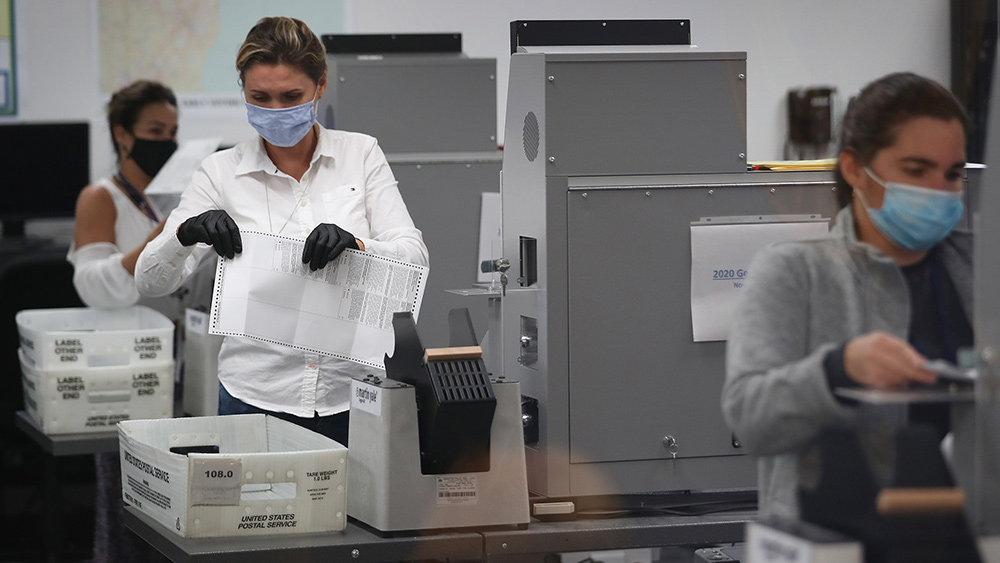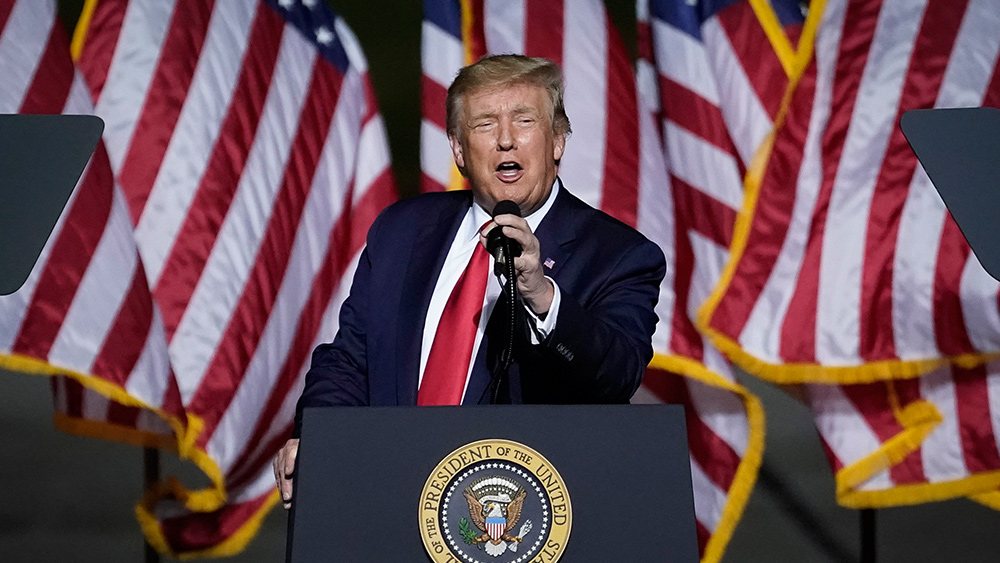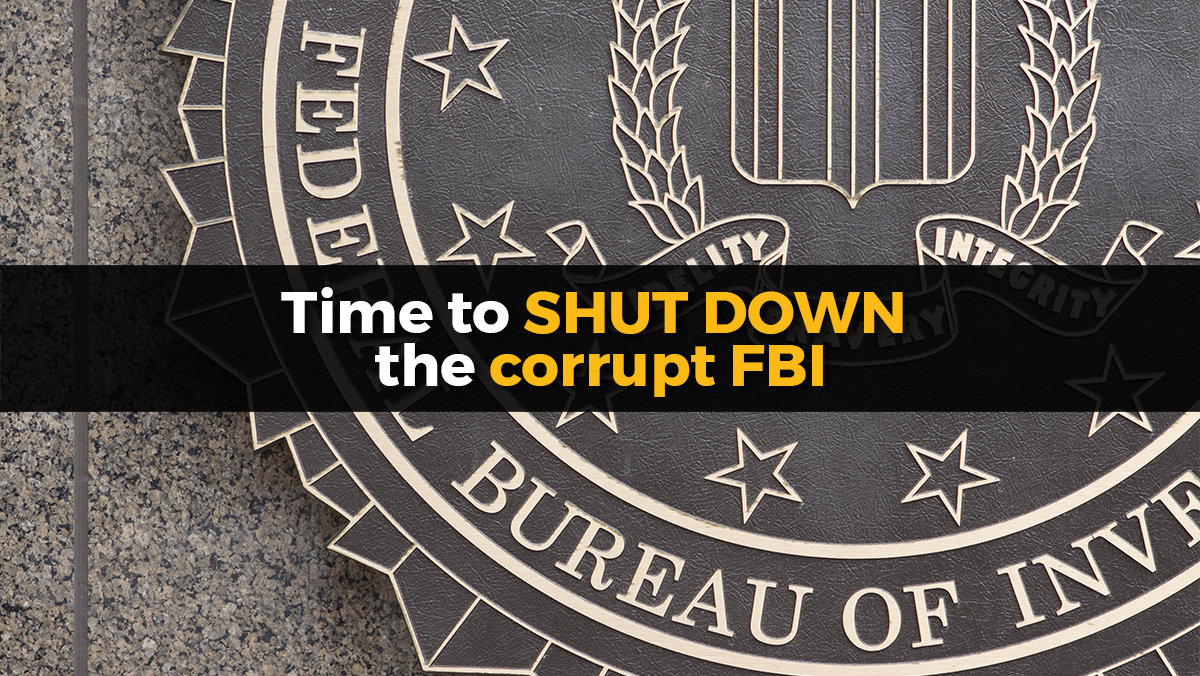New election lawsuit in Georgia seeks to scrutinize non-resident vote and ballot signature anomalies
12/05/2020 / By Ramon Tomey

A lawsuit filed in Georgia seeks to decertify the state’s election results until after an investigation on election irregularities is finished. Registered elector Paul Andrew Boland filed the complaint against Secretary of State Brad Raffensperger and other officials Nov. 30 in a Fulton County court. The lawsuit claims that non-residents cast ballots and signature verification measures were laxly enforced.
The suit elaborates that 20,312 ballots were cast by people who are no longer residing in the state, and the “suspiciously low” number of ballots rejected implied that signature verification measures were “not enforced with their usual rigor.” These resulted in Boland’s vote being diluted, “casting doubt” on election integrity and providing grounds to contest the state’s vote in general.
According to the complaint, Raffensperger’s office did not require signature matching during its audit and recount – thus, “without a meaningful verification of signatures, the election results cannot be certified.” It also alleged that the state secretary unlawfully and unconstitutionally weakened safeguards against fraudulent ballots such as signature requirements.
Boland’s suit asks the court to decertify the Ga. election results until the state secretary’s office finishes examining a sample of the more than 20,000 questionable individuals flagged for voting despite being non-residents. It also calls to check if signatures on absentee ballots match the ones on file and to make all ballots and envelopes used to cast absentee ballots available to the public.
If the two investigations and other related remedies cannot be assured, the suits calls to redo the state elections. Raffensperger’s office did not immediately respond to The Epoch Times‘ request for comment.
Boland cited two sources to back up his claim of fraudulent votes being cast
Boland cited two sources to bolster his allegations in the complaint.
First, he cited an expert analysis by former Trump campaign data chief Matt Braynard to support the claims that more than 20,000 ballots were cast by out-of-state residents. Braynard and his team scrutinized addresses on voter rolls, and found that thousands of these were postal and commercial addresses made to look like residential ones – which violated Ga. law. (Related: New York Times columnist urges Democrats to commit voter fraud in Georgia.)
Braynard tweeted Nov. 22 that his team “identified over a thousand … votes cast by individuals whose registered addresses are in fact at post offices, UPS and FedEx locations, wilfully disguising the box numbers as ‘Apt.,’ ‘Unit,’ etc.” He subsequently posted a sample of the addresses passed off as residential locations they examined.
The complaint says that the more than 20,000 “invalid” votes “far exceeds” the certified 12,760-vote margin of victory in the presidential results.
Second, Boland cited an affidavit by Benjamin Overholt of the University of Northern Colorado to back up the claim that signature verification was laxly enforced. The claim is based on “unusually low” absentee ballot rejection rates: The rejection rate for the 2020 general election was at 0.15 percent compared to the previous general election’s 0.28 percent. The 2018 general elections registered a 0.20 percent ballot rejection rate, and the 2020 primary elections recorded a 0.28 percent rejection.
Overholt, who is an expert in applied statistics and research methods, wrote in his sworn statement: “There are other anomalies in the reported data that should be analyzed, and many raise significant questions about the conduct and results of the 2020 general election.” He further argued that the state’s “hand count” audit of its election results would not resolve these issues. (Related: The Georgia recount may be as corrupt as the election itself.)
Other conservative personalities such as Jenny Beth Martin of the Tea Party Patriots have emphasized the importance of signature matching in the event that votes are recounted. The Ga. native said during an American Thought Leaders interview that “the most important part is going to be looking at the signatures” on mail-in ballots.
Martin continued: “There is reason to believe that [absentee ballot counting] may not have been done properly. So I think’s it’s very important that we have an audit of all of those signatures to make sure that the ballots … being counted were actually legally cast.”
VoteFraud.news gives you the latest regarding lawsuits to combat election fraud in Georgia and other battleground states.
Sources include:
Submit a correction >>
Tagged Under:
absentee ballots, absentee voting, ballot fraud, ballot rejection, ballot verification, Benjamin Overholt, Brad Raffenspeger, Democratic Party, Donald Trump, election complaint, election fraud, election lawsuit, Election results, Electoral Fraud, fake addresses, general elections, Georgia, Joe Biden, mail in voting, mail-in ballots, Matt Braynard, non-resident voters, Paul Andrew Boland, presidential elections, rigged, secretary of state, signature matching, signature verification, vote fraud
This article may contain statements that reflect the opinion of the author
RECENT NEWS & ARTICLES
COPYRIGHT © 2018 TRAITORS.NEWS
All content posted on this site is protected under Free Speech. Traitors.news is not responsible for content written by contributing authors. The information on this site is provided for educational and entertainment purposes only. It is not intended as a substitute for professional advice of any kind. Traitors.news assumes no responsibility for the use or misuse of this material. All trademarks, registered trademarks and service marks mentioned on this site are the property of their respective owners.





















